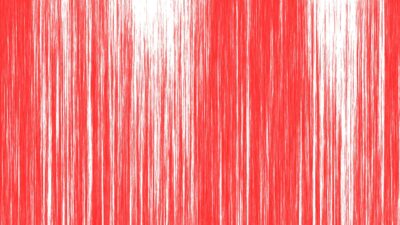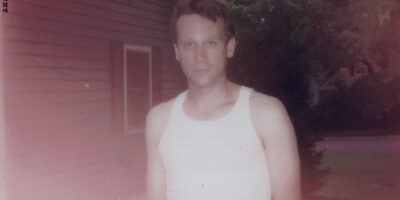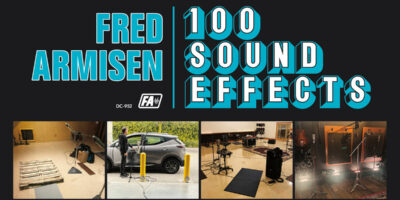This article previously appeared on Crossfader
Neil Young + Promise of the Real – THE VISITOR
Genre: Folk, Americana
Favorite Songs: “Change of Heart,” “Forever”
How we listen to music and the conversation surrounding it, for the first time in years, has quieted. Discussions about streaming have become (relatively) less radicalized than they were even two years ago, and the embrace of digital music has become complete, for better or worse. Even Neil Young, one of the last men standing in the battle over streaming, gave in at the end of last year and released all of his music on Spotify after years of fighting for higher streaming quality and attempts at developing his own music player, Pono.
While he may have given in to modern listening habits, at 72 years old, it’s hard to see Young ever truly giving up that fight. In conjunction with the release of his newest album with Promise of the Real, THE VISITOR, Young has released the Neil Young Archives (NYA), a site built to experience Young’s music digitally, where he can curate and deliver high res quality for every one of his records. “Apple not offering a top-quality tier has led labels to stop making quality products available to the masses,” writers Young in the intro to the site. “Stimulating a top-quality tier would restore and bring the great classic recordings of all music history to Full Resolution digital like you find at NYA.”
So I experienced THE VISITOR not through Spotify or an iTunes download, but through a 24-bit/192kHz stream provided on the Neil Young Archives, free of charge. And I’m here to say THE VISITOR is a 2010s Neil Young album, and there isn’t a high-enough fidelity recording of it that will change that fact. If we go through the Canadian singer-songwriter’s output throughout the decade, the muddy, grimy, salt-of-the-earth snarling heartland jam rock of the Crazy Horse era casts a looming shadow over his musical persona, a fact that has boxed in Young. Between a pair of actual Crazy Horse releases (AMERICANA and PSYCHEDELIC PILL), his debut with Promise of the Real (THE MONSANTO YEARS), and primarily stripped-down solo works (PEACE TRAIL and A LETTER HOME), Young’s identity has mostly centered around either crunchy jam guitar riffs or solo ‘60s songwriter fare, both of which allow him to build (or cover) anthemic protest music in a way that dilutes the experimental and avant garde nature of much of his discography. And while noisey psych projects like LE NOISE or big band noodlings like STORYTONE have filtered through his recent output, the Neil Young that we’ve come to know and recognize through this latest career arc is that of the journeymen hippy, an iconoclast to the modern rocker, both classic and contemporary, in almost every way.
Those anthemic protests come to us, at least in part, through a unifying power-to-the-people theme that fuels the album. In case you lost track, THE VISITOR is Young’s first proper release since the inauguration of Donald Trump as President of the United States, and naturally, he has some things to say. He opens on “Already Great” by reminding us that, “I’m Canadian by the way / And I love the USA,” before jumping into a chorus of ,“Already great / You’re already great / You’re the promised land / You’re the helping hand.” “Already Great,” like “Children of Destiny” and “When Bad Got Good,” lack nuance, but Young is also the guy who made an entire album dedicated to denouncing an agricultural biotechnology corporation, so this feels par for the course. And while the shots at Trump are characteristic for Young, their inclusion on THE VISITOR feels somewhat forced, especially considering “Children of Destiny” was released in July and was never tied to any theoretical album at the time. Unwilling to commit to anti-Trump songwriting, THE VISITOR falls back on Young’s recent obsessions, including environmental politics (“Stand Tall,” “Diggin’ A Hole”), end-of-life musings (“Change of Heart,” “Almost Always”), and a literal song about a “Carnival,” lacking the cohesion that make Young’s best albums truly great. The record feels distracted and, like many of his works, reads as though it draws from songs that were written individually rather than in service of a whole. While the inability to fully integrate Trump-protest songs into (generally speaking) non-political records has been a constant creative hurdle in 2017, even with Young’s already established political nature, he nonetheless misses the jump.
In many ways, this 39th studio album feels both natural and obvious, resulting in a pretty by-the-numbers Neil Young record with a few interesting elements and a whole lot of drab sameness, featuring those cutting yet simplistic political anthems, dusty country instrumentation by way of Lukas Nelson and the rest of his backing band, a meandering 10-minute closer, and Young’s tried-and-true nasally vocals. Unlike THE MONSANTO YEARS, where the billing of a backing band seemed inconsequential compared to his recent releases, the production on THE VISITOR feels much more akin to Promise of the Real’s traditionally mid-tempo and individually layered alt-country mixes, really accenting each of the individual parts. Tracks like “Change of Heart” or “Diggin’ a Hole” feature really defined musical ideas, and the boogie woogie pianos, xylophones, and backing vocals each come with a ton of personality—something that almost feels accentuated by the higher quality playback. Even a misfire like the sultry, South-of-the-border tango “Carnival” is still one of the more interesting pieces of music Young has released as of late. But by nature of both the pacing and how redundant sounding the record can be in light of his recent discography, THE VISITOR’s biggest sin is how boring it is, revealing nothing about Young, either musically or lyrically, that we haven’t already heard him explore ad nauseum.
Yet, for as boring as THE VISITOR is at times, there was a simple joy in hearing the record through Young’s personal delivery method, somuchso that its worth experiencing some of (if not all of) the album via that delivery. For something that could read as a gimmick, the Neil Young Archive is fantastically built out, letting you know when songs were written, what musicians appear, what session every track was recorded during, and easy access to every set of lyrics. While the higher playback, at least to my ears, seemed to make very little difference, it was neat to see what Young had built, and as artists begin to consider the best ways to immortalize the breadth of their work, I hope they take a look at this. While his interjection into conversations about streaming often times read like “Old Man Yells At Cloud,” the NYA is a delight and easily elevated my experience listening to THE VISITOR.
Verdict: Do Not Recommend















Comments